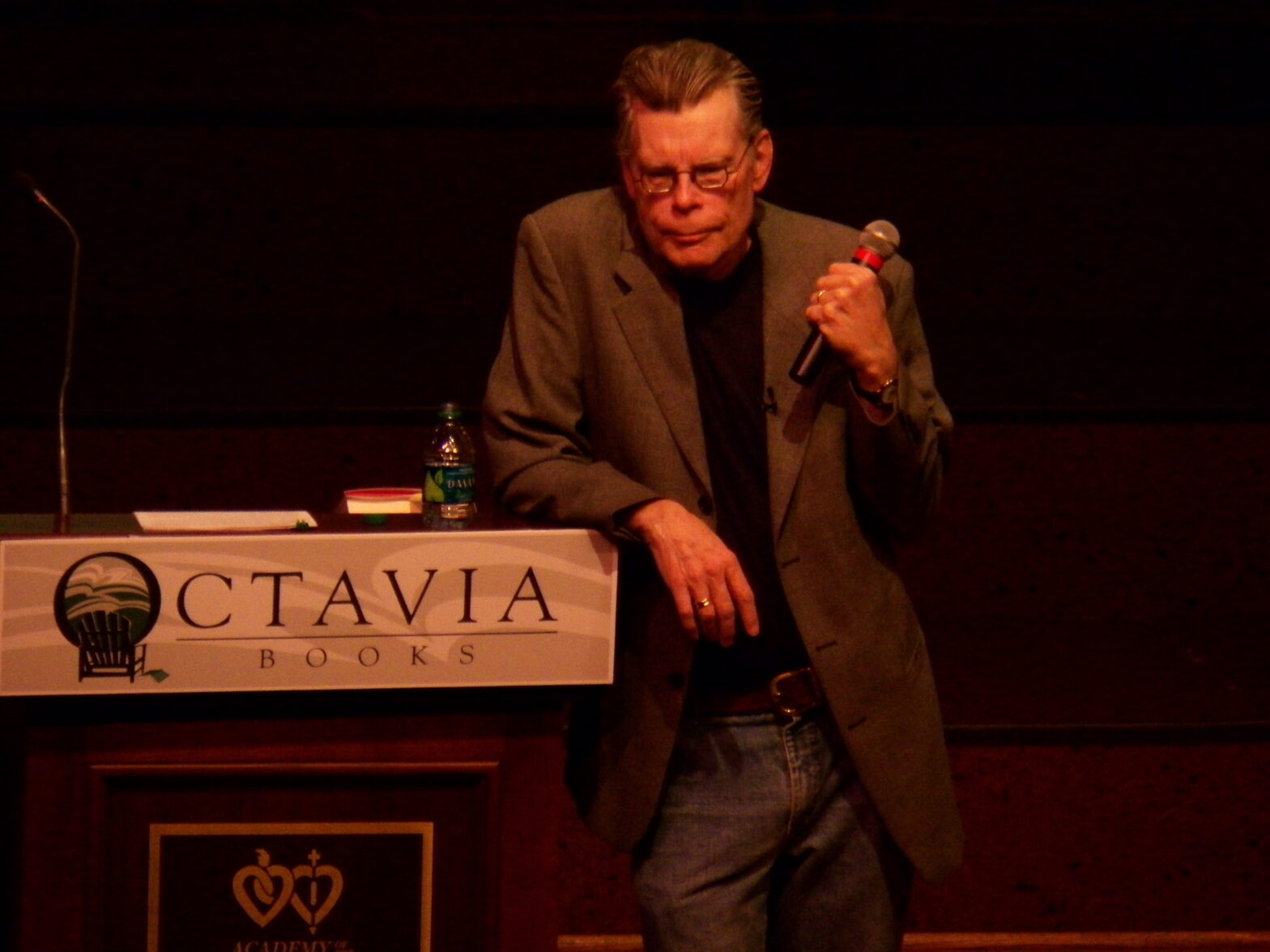The master of horror, Stephen King, is back into the spotlight with the latest adaptation of his deep well of stories, ‘It‘. Entrenched in the pantheon of the world’s best writers, King’s crown is built upon the many thousands of pages of high fantasy, creeping horror and coming-of-age nuance.
With audiences flocking to the cinema to get their latest horror hit from ‘Pennywise the Dancing Clown’, King’s ‘constant readers’ have an insatiable thirst and high demands for his product. Keeping his audience (semi) happy, King’s best works include popular stories such as The Shawshank Redemption, Cujo, The Shining and The Green Mile.
Never shying away from writing long and sweeping novels, many of Kings stories are lengthy tomes, taking months of planning, organisation and meticulous dedication to his customer, the constant reader. Indeed, Misery‘s self-aware tale of an author hounded and stalked by a disgruntled fan, pokes fun at the demanding nature of consumerism and the expectations that customers have to their favourite (authors) brands.
But King doesn’t need his customers to crack the whip, he does it himself. Selling over 350 million copies spanning 50 years, 52 novels and 200 short stories, you’d be hard pressed to contest that King lacks motivation.
On his attitude to becoming a successful writer, King quips,
“If you want to be a writer, you must do two things above all others: read a lot and write a lot. There’s no way around these two things that I’m aware of, no shortcut.”
― Stephen King, On Writing: A Memoir of the Craft
While you may not be embarking on completing the next best-selling novel in the foreseeable future, changing your mindset on how you approach your work and how you absorb the experiences around you can have surprising effects on your productivity.
If you approached your finance management or your sales pitch in the same way King approaches his writing desk, what success could you find? Would your productivity really improve?
Check out Stephen King’s lessons to productivity to find out if you’re working at the right level.
Don’t sit around, just get working!
Sitting at the foot of the proverbial workload mountain, you might wonder if you are ever going to get the job done. You face a task that appears so insurmountable you can’t even bring yourself to start.
King possesses a creative genius that few others possess, but his attitude to his craft is not an alien concept.
“Amateurs sit and wait for inspiration, the rest of us just get up and go to work.”
― Stephen King, On Writing: A Memoir of the Craft
Picking up a pen and starting is probably the scariest part of writing a book, so you are not alone in your apprehension. King’s brutal schedule to achieve a mastery of his craft is something to be admired.
“I like to get ten pages a day, which amounts to 2,000 words. That’s 180,000 words over a three-month span, a goodish length for a book — something in which the reader can get happily lost, if the tale is done well and stays fresh.”
Breaking down the challenge into manageable chunks and keeping to your own personal deadlines is the key to increased productivity.
Think about your audience
Writers are split into plotters and pantsers; you either write your books with a meticulous and exact plan of where you want the story to go, or you have an end goal for your book but you make it up as you write. King is part of the latter camp, but always remembers that his audience is pivotal to his success.
The customer is never out of his mind and business owners can learn a lot from this.
It is easy to get tied up in your own creativity and grow your idea internally without really considering whether consumers actually want what you are offering. Develop your business but remember the audience is your motivational finish line.
“Description begins in the writer’s imagination, but should finish in the reader’s.”
― Stephen King, On Writing: A Memoir of the Craft
Using this mentality can focus your approach and stop you from wondering off on a tangent into your own imagination.
Remember why you are working in the first place
Waist-deep in work at your office, you may forget precisely why you started a business in the first place. The pressure and stress can be a lot to handle and can push all the fun, enjoyment and focus out of your work. Motivation is a fog that is hard to pin down in the middle of busy periods.
Related: The six ways of a productivity ninja
When King hits the creative wall and loses focus from the reasons why he started, taking a step back and putting things into perspective is crucial.
“Writing isn’t about making money, getting famous, getting dates, getting laid, or making friends. In the end, it’s about enriching the lives of those who will read your work, and enriching your own life, as well. It’s about getting up, getting well, and getting over. Getting happy, okay? Getting happy.”
― Stephen King, On Writing: A Memoir of the Craft
So if you have lost a few nights sleep because Pennywise simply won’t leave your dreams and you are struggling to get through your day’s work, emulate the master of horror, take a step back, breathe and pick up that pen!






